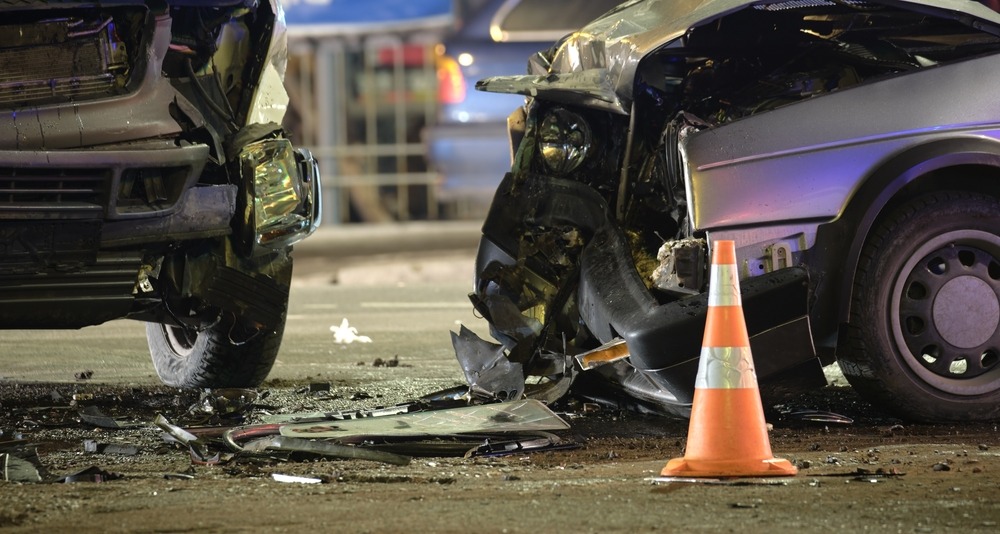Dealing with a totaled vehicle can be an extremely frustrating situation. You’re already shaken up from a collision and now your transportation is destroyed – maybe one you still owed money on.
Many questions arise, including the common one – who actually gets paid out by insurance when a car is deemed totaled: you or the insurance company?
There often seems to be conflicting information when researching after an accident. This article definitively answers the key issues: ownership rights to the vehicle and negotiating a settlement.
What Happens When the Insurance Company Declares Your Car a Total Loss
After an accident, your insurer will assess the damage to your vehicle. They will consider the repair to be a total loss if it exceeds a certain percentage of the vehicle’s pre-loss value, usually around 75%. The insurance company will then make you an offer based on the actual cash value of your car. This assessed value accounts for age, condition, features, and mileage.
Once they declare your vehicle totaled, some key things happen:
- The insurer takes possession of the car and sells it for salvage value
- You must continue making loan or lease payments if applicable
- Gap insurance may help cover the difference between the car’s value and the remaining loan balance
Getting your vehicle back after a total loss can be difficult. Your car accident lawyer can advise you on your options if you hope to keep and repair the car.
Who Receives the Insurance Check After a Total Loss?
Who actually gets the check depends on whether you owned the car outright or still owed money on it:
If You Have an Outstanding Loan
If you still owe money on your car loan when it’s totaled, your lender gets the check first. The insurer will pay the lienholder the lesser of either the car’s actual cash value or the remaining loan balance. Any leftover funds after repaying your loan go to you.
If You Own the Car Outright
If there is no lien on your totaled vehicle, the insurer pays you directly. Without outstanding loans, you receive the entire settlement amount. Use these funds towards replacing your car or as you see fit.
For Leased Vehicles
With a leased car, the leasing company must receive the payout to cover the residual value you still owe. You are responsible for any excess mileage or wear and tear fees. There is usually no cash payout to you after the lease balance is paid.
Other Scenarios
- Multiple vehicle owners – Any owners listed on the title will be issued one check to split.
- No collision coverage – Without this coverage, you get nothing from your own insurer. You’d have to try claiming through the at-fault driver’s insurance.
- Disputing the valuation – You can negotiate for a higher settlement if you believe the insurer undervalued your car. Get quotes from mechanics to help justify a higher payout.
Factors That Determine Who Gets the Insurance Check
Situations differ, so blanket rules don’t always apply. Here are some other key factors impacting who receives the payout:
- Type of coverage – Collision vs. liability vs. uninsured motorists all have different settlement procedures.
- Deductible amounts – Your deductible gets subtracted from the payout total first.
- Gap insurance benefits – This coverage helps pay the difference between the car’s value and the remaining loan amount.
- New car replacement coverage – With this addon, you may receive enough to purchase a new similar vehicle.
- Rental reimbursement – Your insurer pays this directly to the rental car company.
Negotiating a Fair Settlement Offer From the Insurance Company
Insurers initially offer the lowest reasonable amount for your totaled car. But you can dispute a lowball offer and push for a higher settlement. Here’s how a personal injury attorney can help maximize your payout:
- Get an independent appraisal of your car’s worth before negotiating. This provides leverage.
- Calculate tax, title, and registration costs to include in the settlement value. Insurers often leave these out.
- Factor in aftermarket parts and accessories like stereo equipment to increase the vehicle’s value.
- Claim relevant sales tax on the total loss in applicable states.
- Research local market values for your car’s make, model, and year. This often exceeds book value.
- Point out flaws in the insurer’s valuation methods. Hold them accountable.
Let A Total Loss Expert Help You After Your Accident
Having your vehicle totaled can be extremely stressful. But you don’t have to deal with the insurance claims process alone.
For years, the dedicated personal injury attorneys at Pasternack Injury Law Group have helped clients recover millions in compensation after accidents.
Their lawyers will protect your rights, maximize your settlement, and ease worries during this difficult time. Their legal experience helps secure the maximum possible settlement while alleviating the burden on clients still reeling from a collision.
If your car was totaled, visit the firm online at https://pasternackinjurylaw.com/ today to request a free consultation.





